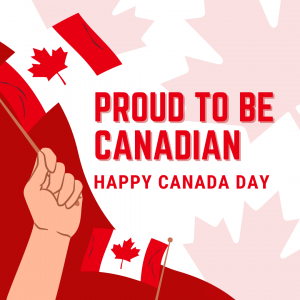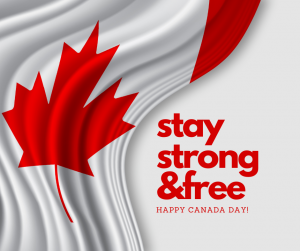
Canada offers several visa options for Pakistanis, including:
-
Visitor Visa: Pakistanis can apply for a visitor visa to visit Canada for tourism, visiting family or friends, or attending business meetings or conferences. The visitor visa allows you to stay in Canada for a temporary period.
-
Study Permit: Pakistani students can apply for a study permit to pursue higher education in Canada. To be eligible, you need to have an acceptance letter from a designated learning institution in Canada.
-
Work Permit: Pakistanis can apply for a work permit to work in Canada temporarily. There are different types of work permits, such as employer-specific work permits, open work permits, and working holiday permits. Each has its own eligibility criteria.
-
Express Entry: Canada’s Express Entry system is a popular pathway for skilled workers to immigrate to Canada. It is a points-based system that assesses candidates based on factors such as age, education, work experience, language proficiency, and adaptability.
-
Provincial Nominee Programs (PNPs): Canada’s provinces and territories have their own immigration programs called PNPs. These programs allow provinces to nominate individuals with specific skills and qualifications to settle in their region.

visitor visa
A visitor visa, also known as a temporary resident visa (TRV), allows individuals from certain countries, including Pakistan, to visit Canada for tourism, visiting family or friends, or attending business meetings or conferences. Here are some details about the Canada visitor visa:
-
Eligibility: To be eligible for a visitor visa, you need to demonstrate that you meet the requirements set by the Canadian government. These requirements include having a valid passport, being in good health, having sufficient funds to support your stay, having ties to your home country (such as a job, property, or family), and providing evidence that you will leave Canada at the end of your authorized stay.
-
Application Process: To apply for a visitor visa, you need to complete the application form, pay the required fees, and submit supporting documents. The application can be submitted online or through a paper application. You will need to provide your personal information, travel history, purpose of visit, and other relevant details. You may also need to undergo a medical examination and provide biometrics (fingerprints and photograph).
-
Processing Time: The processing time for a visitor visa application can vary. It is recommended to apply well in advance of your intended travel date. You can check the estimated processing times on the official website of Immigration, Refugees and Citizenship Canada (IRCC).
-
Duration of Stay: If your visitor visa application is approved, you will be issued a visa that specifies the duration of your authorized stay in Canada. Typically, visitors are allowed to stay for up to six months. However, the immigration officer at the port of entry has the authority to determine the actual length of your stay based on your purpose of visit and other factors.
-
Multiple Entry Visa: In some cases, visitors may be eligible for a multiple entry visa, which allows them to enter Canada multiple times within a specified period without having to reapply for a visa. This can be beneficial for individuals who frequently travel to Canada for various purposes.

Study Permit
A study permit is a document issued by the Canadian government that allows international students, including those from Pakistan, to study at designated learning institutions (DLIs) in Canada. Here are some details about the study permit:
-
Eligibility: To be eligible for a study permit, you must have an acceptance letter from a DLI in Canada. You also need to prove that you have sufficient funds to cover your tuition fees, living expenses, and return transportation. Additionally, you must provide evidence of a clean criminal record and be in good health. It’s important to note that meeting the eligibility requirements does not guarantee approval of the study permit.
-
Application Process: To apply for a study permit, you need to complete the application form, pay the required fees, and submit supporting documents. The application can be submitted online or through a paper application. You will need to provide your personal information, details about your intended program of study, proof of acceptance from a DLI, financial documents, and other relevant information. You may also need to undergo a medical examination and provide biometrics (fingerprints and photograph).
-
Processing Time: The processing time for a study permit application can vary. It is recommended to apply well in advance of your intended start date to allow for sufficient processing time. You can check the estimated processing times on the official website of Immigration, Refugees and Citizenship Canada (IRCC).
-
Duration of Study Permit: If your study permit application is approved, you will be issued a permit that allows you to study in Canada for the duration of your program of study. It’s important to note that you must actively pursue your studies and maintain full-time student status to remain in compliance with the study permit requirements.
-
Work Opportunities: With a valid study permit, you may be eligible to work on or off-campus while studying in Canada. There are certain restrictions and conditions that apply, so it’s important to familiarize yourself with the specific work permit regulations for international students.

Work Permit
A work permit is a document issued by the Canadian government that allows individuals, including those from Pakistan, to work in Canada temporarily. Here are some details about the work permit:
-
Eligibility: To be eligible for a work permit, you generally need to have a job offer from a Canadian employer. The employer may need to obtain a Labour Market Impact Assessment (LMIA) from Employment and Social Development Canada (ESDC) to demonstrate that there are no Canadian citizens or permanent residents available to fill the position. However, there are certain exemptions and programs that do not require an LMIA, such as the International Mobility Program (IMP) and the Global Talent Stream.
-
Application Process: The application process for a work permit depends on the specific program or stream you are applying under. In most cases, the Canadian employer needs to submit the offer of employment and other required documents to support your application. You may also need to provide your personal information, educational qualifications, work experience, and other relevant details. The application can be submitted online or through a paper application.
-
Processing Time: The processing time for a work permit application can vary depending on the program and the location where you are applying from. It is recommended to apply well in advance of your intended start date to allow for sufficient processing time. You can check the estimated processing times on the official website of Immigration, Refugees and Citizenship Canada (IRCC).
-
Duration of Work Permit: The duration of a work permit can vary depending on the specific circumstances. In some cases, work permits are issued for a specific job and employer, while in other cases, they may be open work permits that allow you to work for any employer in Canada. The work permit will specify the validity period, and you must stop working in Canada once the permit expires unless you obtain an extension or a new work permit.
-
Work Opportunities: With a valid work permit, you are allowed to work in Canada according to the conditions specified on your permit. Some work permits may have restrictions on the type of work or the employer you can work for, while others may allow you to work in any occupation or for any employer. It’s important to familiarize yourself with the specific conditions and restrictions of your work permit.

Express Entry
Express Entry is a system implemented by the Canadian government to manage the applications for permanent residence from skilled workers. It is a points-based system that assesses candidates based on various factors, including age, education, work experience, language proficiency, and adaptability. Here are some details about Express Entry:
-
Eligibility: To be eligible for Express Entry, you must meet the requirements of one of the three federal economic immigration programs: the Federal Skilled Worker Program (FSWP), the Federal Skilled Trades Program (FSTP), or the Canadian Experience Class (CEC). Each program has its own specific eligibility criteria, but generally, you need to have relevant work experience, meet language requirements, and have sufficient funds to support yourself and your family members.
-
Comprehensive Ranking System (CRS): Express Entry uses the Comprehensive Ranking System to rank candidates based on their skills and qualifications. The CRS assigns points to various factors, such as age, education, work experience, language proficiency, and adaptability. The highest-ranking candidates are invited to apply for permanent residence through regular draws from the Express Entry pool.
-
Express Entry Pool: To enter the Express Entry pool, you need to create an online profile and provide information about your skills, education, work experience, language proficiency, and other relevant details. Once your profile is complete, you will be assigned a CRS score. If you meet the minimum CRS score requirement, you will be placed in the pool of candidates.
-
Invitation to Apply (ITA): Regular draws are conducted from the Express Entry pool, and candidates with the highest CRS scores are issued Invitations to Apply (ITAs) for permanent residence. If you receive an ITA, you will have a specified period of time to submit a complete application for permanent residence.
-
Provincial Nominee Programs (PNPs): Express Entry candidates can also be nominated by a Canadian province or territory through their respective Provincial Nominee Programs (PNPs). A provincial nomination can provide additional points to your CRS score, increasing your chances of receiving an ITA.
-
Processing Time: The processing time for Express Entry applications can vary. Once you submit a complete application for permanent residence, it will be assessed by the Canadian government. The processing time can depend on factors such as the volume of applications, the complexity of your case, and the accuracy and completeness of your application.

Provincial Nominee Programs (PNPs)
Provincial Nominee Programs (PNPs) are immigration programs implemented by individual provinces and territories in Canada to address their specific economic and demographic needs. PNPs allow provinces and territories to nominate individuals with the skills and qualifications required to contribute to their local economies. Here are some details about PNPs:
-
Eligibility: Each province and territory in Canada has its own set of eligibility criteria and streams under their respective PNPs. These criteria may include factors such as education, work experience, language proficiency, and ties to the province or territory. Some PNPs have specific streams for skilled workers, international graduates, entrepreneurs, and other categories.
-
Application Process: The application process for PNPs varies depending on the province or territory. Generally, you need to follow a two-step process. First, you need to apply to the province or territory for a nomination. If nominated, you can then apply to the federal government for permanent residence. The specific requirements, documents, and application forms can be found on the official websites of the respective PNPs.
-
Provincial Nomination: If you are nominated by a province or territory, you will receive a Provincial Nomination Certificate. This certificate allows you to apply for permanent residence through the federal government’s immigration program. A provincial nomination can provide additional points to your Comprehensive Ranking System (CRS) score in the Express Entry system, increasing your chances of receiving an Invitation to Apply (ITA) for permanent residence.
-
Express Entry and Non-Express Entry Streams: Some PNPs have streams that are aligned with the federal Express Entry system, while others have streams that operate outside of Express Entry. Express Entry-aligned streams allow candidates to enter the Express Entry pool and receive additional points for a provincial nomination. Non-Express Entry streams are for candidates who do not meet the requirements of the federal programs but are still eligible for nomination by a province or territory.
-
Processing Time: The processing time for PNPs can vary depending on the province or territory and the specific stream you are applying under. It is recommended to check the official website of the respective PNP for the most up-to-date information on processing times.
Note:
It’s important to note that each Visa types has its own specific requirements, application processes, and eligibility criteria. It’s advisable to thoroughly research and understand the requirements of the all visas for you are interested in and consult the official website of the respective province or territory for the most accurate and up-to-date information. Consult the official website of Immigration, Refugees and Citizenship Canada (IRCC)